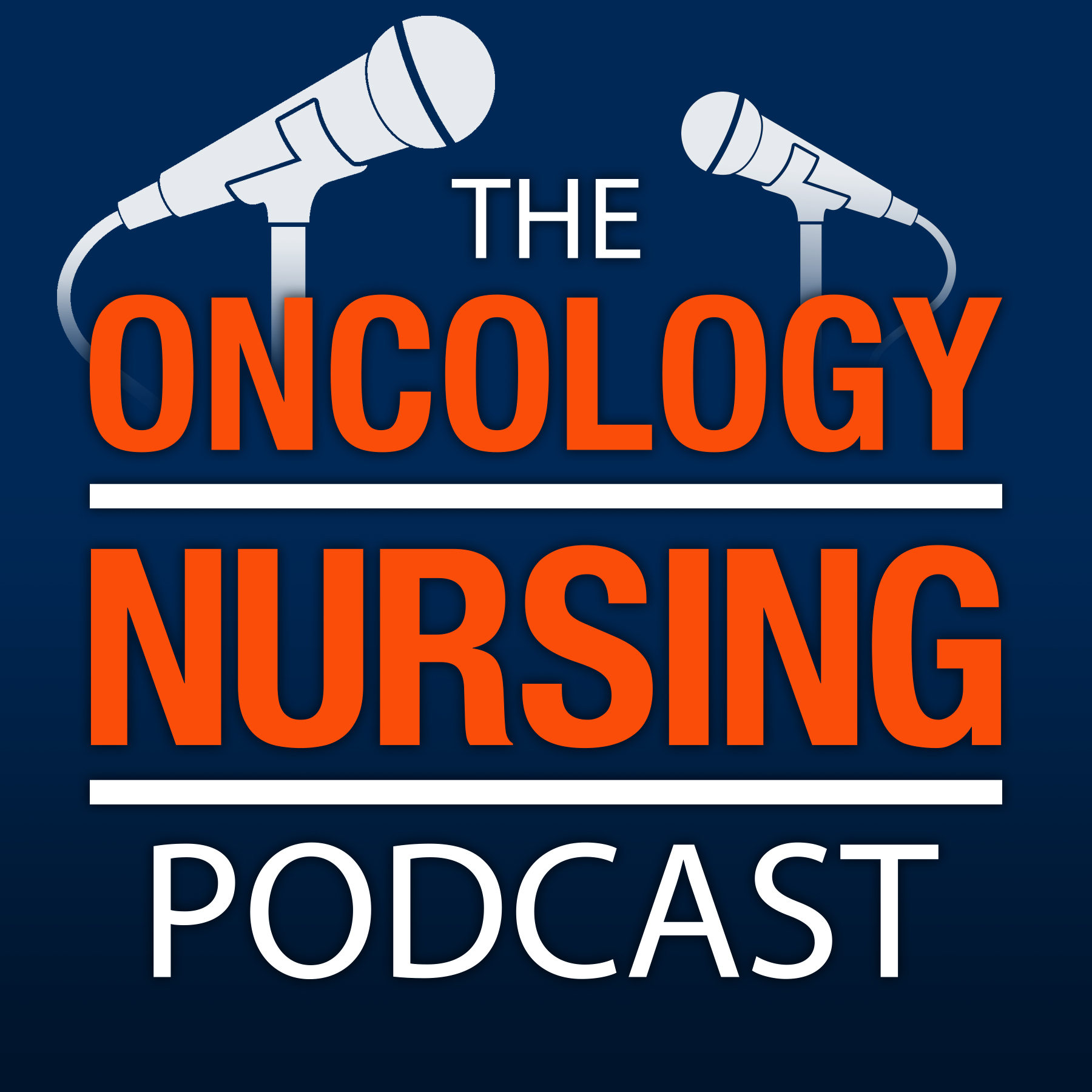Episode 324: Pharmacology 101: LHRH Antagonists and Agonists
Description
“A lot of the efforts have been made to improve the patient experience for these treatments, as they can be given for years at a time. For example, when leuprolide debuted way back in 1985, it was a daily injection. But four years later, they developed the monthly depo formulation. Now we have formulations that are approved for administration once only every three, four, and even six months,” Andrew Ruplin, PharmD, clinical oncology pharmacist at Fred Hutchinson Cancer Center in Seattle, WA, told Jaime Weimer, MSN, RN, AGCNS-BS, AOCNS®, manager of oncology nursing practice at ONS, during a conversation about the luteinizing hormone–releasing hormone (LHRH) antagonist and agonist drug classes.
Music Credit: “Fireflies and Stardust” by Kevin MacLeod
Licensed under Creative Commons by Attribution 3.0
Earn 0.5 contact hours of nursing continuing professional development (NCPD) by listening to the full recording and completing an evaluation at courses.ons.org by August 9, 2026. The planners and faculty for this episode have no relevant financial relationships with ineligible companies to disclose. ONS is accredited as a provider of nursing continuing professional development by the American Nurses Credentialing Center’s Commission on Accreditation.
Learning outcome: Learners will report an increase in knowledge related to LHRH antagonists and agonists.
Episode Notes Complete this evaluation for free NCPD. Oncology Nursing Podcast episodes: Pharmacology 101 series Episode 321: Pharmacology 101: CYP17 Inhibitors Episode 242: Oncology Pharmacology 2023: Today’s Treatments and Tomorrow’s Breakthroughs Episode 154: New Drug Approvals for Metastatic Castration-Sensitive Prostate Cancer Episode 113: Manage Cancer-Related Hot Flashes With ONS Guidelines™ ONS Voice article: Oncology Drug Reference Sheet: Relugolix ONS books: Chemotherapy and Immunotherapy Guidelines and Recommendations for Practice (second edition) Safe Handling of Hazardous Drugs (fourth edition) Guide to Breast Care for Oncology Nurses ONS course: Safe Handling Basics ONS Guidelines™ and Symptom Interventions ONS Huddle Card: Hormone Therapy ONS Learning Libraries: Breast Cancer Cancer of the Genitourinary Tract Oral Chemotherapy Education Sheets National Comprehensive Cancer Network On the Treatment of Inoperable Cases of Carcinoma of the Mamma: Suggestions for a New Method of Treatment, With Illustrative Cases (by George T. Beatson) To discuss the information in this episode with other oncology nurses, visit the ONS Communities.
To find resources for creating an Oncology Nursing Podcast™ Club in your chapter or nursing community, visit the Oncology Nursing Podcast Library.
To provide feedback or otherwise reach ONS about the podcast, email [email protected].
Highlights From This Episode
“Between all of these agonists and antagonists, there’s a broad spectrum of applications, including hormone-positive breast cancer, androgen-deprivation therapy for prostate cancer, uterine cancer, and then other non-cancer uses like uterine fibroids, and assisted reproduction fertility treatments, and other things too.” TS 3:24
“In the education of my female patients, I basically use the analogy that it is functionally inducing menopause in that person, so there can be changes to mood and cognition, energy level fatigue, body morphology, and shifts in fat distribution metabolism, which can unfortunately increase the risk of cardiovascular disease. One that almost everyone’s familiar with is hot flashes, but also changes to bone mineral density, libido and physically to atrophy and dryness of vaginal mucosa, which can make sex for our patients more difficult as well.” TS 10:33
“A concept that’s familiar to all professionals in the care of prostate cancer is that because LHRH agonists cause an initial increase in testosterone, which can, in essence, feed the cancer, some patients can exp
More Episodes
“Under normal conditions, EGFR [epidermal growth factor receptor] is in an auto-inhibited state. And it’s only when it’s needed that it’s upregulated. But when you have cancers that there is either a mutation in the EGFR or an overexpression, what you see is a dysregulation of normal cellular...
Published 11/08/24
Published 11/08/24
Episode 335: Ultrasound-Guided IV Placement in the Oncology Setting
“Much like many experienced oncology nurses, I learned how to do IVs with palpation. I got really good at it. And so I thought, there’s no way I need this ultrasound. But we know now that our patients are sicker. There are...
Published 11/01/24


